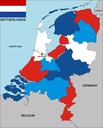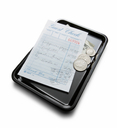
Spanish Language Game: Puedo pagar
Quick Spanish Language Game "¿Puedo pagar en metálico?" (Can I pay in cash?)
Level: Beginner (A1)
Playing Time: 3 Minutes
In this fun Spanish language game, you can playfully learn 8 conversational Spanish words and phrases.
Learn and practice as you play this Quick Game sequence - Memory, Word Invaders, Flash Cards, and finally Shoot Out.
Vocabulary
- Perdone. - Excuse me. (formal)
- ¿puedo? - can I ... [poder]
- pagar - pay
- en metálico - in cash
- tengo - I have [tener]
- cien - (a) hundred
- euros - euros
- sí, claro - yes, of course
And, if your Spanish is more like Level A2 - you can log-in again or register and play the full gamified Spanish Travel Story, for Free.
To check if Elementary Level (A2) is what you want, you can listen to the Spanish 1 Level 3 Podcast
You may also want to read Learning by making mistakes and "winning" games...
The Vocabulary lists of the full Spanish Story (Elementary, A2) can be downloaded as PDFs on the Playing page of the Spanish Story.
Please share us with your friends who also want to learn Spanish or one of our other languages.
More than a Spanish Language Game
If you like our Spanish games, you can practice Spanish - online and completely for Free - with our 36-Scene story "David en España" by just logging in, or registering HERE.
You can find more resources for learning and practicing Spanish on FREELANGUAGE.ORG.
Our FREE Spanish 1 course will let you learn and practice Spanish playfully - with a travel-story of a young man in Spain and easy game.

Spanish Language Game: Vamos a tomar
Quick Spanish Language Game, "Vamos a tomar algo de beber." (Let's have something to drink.)
Level: Beginner (A1)
Playing Time: 4 Minutes
In this fun Spanish language game, you can playfully learn 8 conversational Spanish words and phrases.
Learn and practice as you play this Quick Game sequence - Memory, Word Invaders, Flash Cards, and finally Shoot Out.
Vocabulary
- vamos - let's go [ir]
- vamos a tomar - let's go have ...
- algo - something
- algo de beber - something to drink
- genial - great
- Yo invito. - My treat. (I'm inviting.)
- Qué te atepece - What do you feel like?
- una horchata - a tiger nut drink [Spain]
And, if your Spanish is more like Level A2 (Elementary) - you can log-in again or register and play the full gamified Spanish Travel Story, for Free.
To check if Elementary (A2) is the level you want, listen to the Spanish 1 Level 2 Podcast
You may also want to read 6 Key Elements for Learning a Language with Games.
The Vocabulary lists of the full Spanish Story (Elementary, A2) can be downloaded as PDFs on the Playing page of the Spanish Story.
Please share us with your friends who also want to learn Spanish or one of our other languages.
More than a Spanish Language Game
If you like our Spanish games, you can practice Spanish - online and completely for Free - with our 36-Scene story "David en España" by just logging in, or registering HERE.
You can find more resources for learning and practicing Spanish on FREELANGUAGE.ORG.
Our FREE Spanish 1 course will let you learn and practice Spanish playfully - with a travel-story of a young man in Spain and easy game.
If you are interested in other programs - with which we are are practicing with ourselves - you can read Ulrike's posts: "Lingualia" - Learning Spanish (or English) - A Review, and "Language Zen" - Learning Spanish - A Review for her assessment.

Spanish Language Game: Quieres practicar
Quick Spanish Language Game "¿Quieres practical tu español?" (Would you like to practice your Spanish?)
Level: Beginner (A1)
Playing Time: 4 Minutes
In this fun Spanish language game, you can playfully learn 8 conversational Spanish words and phrases.
Learn and practice as you play this Quick Game sequence - Memory, Word Invaders, Flash Cards, and finally Shoot Out.
Vocabulary
- quieres - you want (familiar) [querer]
- practicar - to practice
- tu español - your Spanish (tu, familiar)
- sí, pero - yes, but
- mi español - my Spanish
- no es - is not [ser]
- muy bueno - very good
- Sin problema. - No problem.
Note:
Pronouns are often dropped in conversational Spanish, the ending of the verb tells you the person: "(tu) quieres".
To make a question in Spanish, you can simply use question intonation.
Play next: Vamos a tomar. - Let's go have ... (something to drink)
And, if your Spanish is more like Level A2 (Elementary) - you can log-in again or register and play the full gamified Travel Spanish Story, for Free.
To check if Elementary (A2) is the level you want, just listen to the Spanish 1 Level 1 Podcast.
If you want to find out why learning Spanish with GamesforLanguage is not only fun but also effective, read 5 Reasons for Language Learning with a Travel Story and Games.
The Vocabulary lists of the full Spanish Story (Elementary, A2) can be downloaded as PDFs on the Playing page of the Spanish Story.
Please share us with your friends who also want to learn Spanish or one of our other languages.
More than a Spanish Language Game
If you like our Spanish games, you can practice Spanish - online and completely for Free - with our 36-Scene story "David en España" by just logging in, or registering HERE.
You can find more resources for learning and practicing Spanish on FREELANGUAGE.ORG.
Our FREE Spanish 1 course will let you learn and practice Spanish playfully - with a travel-story of a young man in Spain and easy games.
If you are interested in other programs - with which we are are practicing with ourselves - you can read Ulrike's posts: "Lingualia" - Learning Spanish (or English) - A Review, and "Language Zen" - Learning Spanish - A Review for her assessment.

Dutch Language Game: 8 Colors
Quick Dutch Language Game: 8 Colors
Playing Time: 4 minutes
Level: A1
Play this quick fun interactive Dutch game to learn and pronounce the names of 8 common colors, including the three Dutch flag colors.
Pronunciation Tips:
For English and German speakers, the words for these colors are pretty easy to recognize.
But pronouncing some Dutch letters and letter combinations can be a challenge.
Pay special attention to and imitate the sounds:
- Dutch "g" - a guttural sound, as in the Scottish "loch". In "grijs, groen, geel" (grey, green, yellow).
- Dutch "r" - mostly rolled. Think of German, or Spanish. In "rood, grijs, groen, bruin, zwart" (red, grey, green, brown, black).
- Dutch "ij" - a little bit like the word "eye". In "grijs" (grey).
- Dutch "oe" - similar to "oo" in "book". In "groen" (green).
- Dutch "ui" - a little bit like the sound "oi". In "bruin" (brown).
Remember, as you play, say the words OUT LOUD, to imitate and try out the Dutch sounds. It'll give you a good start on Dutch pronunciation.
8 Dutch Colors
- rood - red
- geel - yellow
- groen - green
- bruin - brown
- zwart - black
- blauw - blue
- wit - white
- grijs - grey
If you like our Dutch games, please SHARE them with your friends.

German Language Game: "Bitte zahlen"
Quick German Language Game - "Bitte zahlen" (Please, I'd like to pay.)
Level: Beginner (A1)
Playing Time: 3 minutes
A fun online interactive German Language Game: To ask for the check in a café or restaurant.
Signal the waiter (Kellner) or waitress (Kellnerin), and say: "Excuse me!" (Entschuldigung!)
Then you say: "Please I'd like to pay." (Bitte, ich möchte zahlen.)
You'll learn 8 common words with the game sequence: Memory, Word Invaders, Shootout - and Flash Cards to test yourself. Have Fun!
Always say the German OUT LOUD after, or along with the speaker. It's the best way to improve your pronunciation.
For transactions with money, it's really good to know your numbers!
Her's our game to learn German Numbers from 1-20.
Vocabulary
- Entschuldigung - Excuse me
- bitte - please
- ich möchte - I'd like
- zahlen - to pay
- Hier bitte. - Here you are. ["here please"]
- das macht - that makes, that's
- neunzehn - nineteen/ 19
- Euro - euro, euros
More Than a German Language Game
And don't forget: You can practice German online for FREE with our 36-Scene German 1 Story: "Michael in Deutschland" and our 72-Scene German 2 Mystery Story Sequel: "Blüten in Berlin?".
(And - if you already know that "Blüten" means blossom in German - you'll learn that Blüten has still another meaning...). Just login HERE.
If you have any language questions - don't hesitate to contact us!
